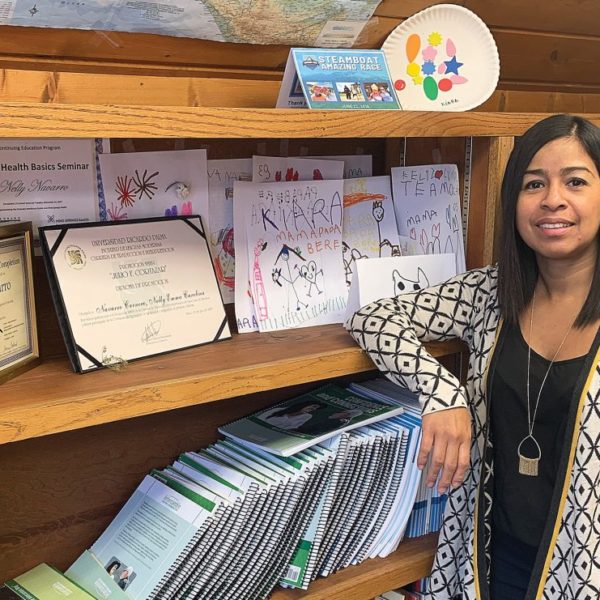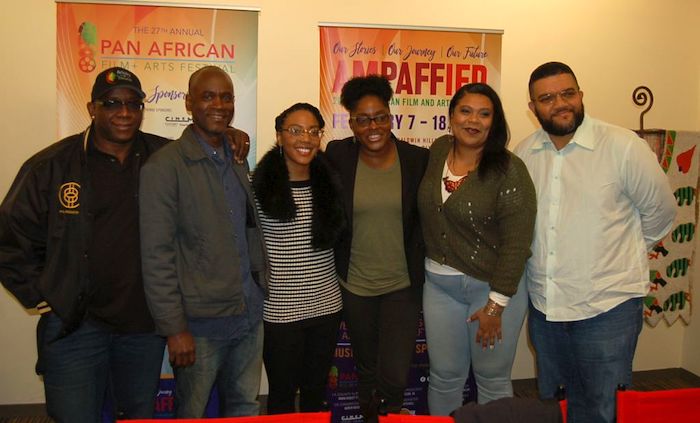As the political landscape surrounding U.S. immigration evolves, many immigrants—particularly those on student visas and green cards—are facing a wave of uncertainty and anxiety. Legal advocates and community organizations are working tirelessly to help navigate this tumultuous environment, but the challenges are mounting. Recent government actions—including the revocation of student visas and a marked increase in enforcement on university campuses—have caused alarm, particularly within immigrant communities. With immigration policies tightening, and the federal government ramping up scrutiny on political activism, it’s clear that the climate for immigrant students has become increasingly volatile.
For many international students, coming to study in the U.S. has long been seen as a dream—a gateway to access the world’s best education, career opportunities, and a brighter future. The journey to the U.S. is not an easy one; it requires sacrifice, perseverance, and immense personal dedication. However, recent events are shaking the foundations of that dream, leaving international students and their families wondering what their future holds.
The Deep Sacrifices and High Hopes of International Students
It’s important to understand the emotional and financial weight that international students carry. The decision to study in the U.S. is not simply an academic pursuit—it’s an act of deep sacrifice. Many students leave behind everything they know—family, friends, and the comfort of familiar surroundings—to pursue education in a foreign land. The hopes are high, and the stakes are even higher. For many, their journey abroad isn’t just about personal advancement; it’s about securing a future for their families back home. Parents pour everything they have into their children’s education, believing that the sacrifices made today will pay off tomorrow—not just for their children but for the entire family. The success of these students represents a return on years of hard work and sacrifice.
But with each new policy change, the dreams of these students feel more precarious. The uncertainty around their immigration status, the looming threat of deportation, and the ever-present risk that their ability to continue studies in the U.S. could be abruptly disrupted are all realities they must now face. For many, something as simple as visiting family back home is no longer a straightforward decision—it’s a gamble. Returning home could put their U.S. status in jeopardy, and many students are left caught between the pull of family and the risk to their futures.
The Legal Risks: A Tightening Noose
The legal landscape for immigrants in the U.S. has shifted dramatically, and this shift is leaving many students scrambling for answers. Recently, federal authorities revoked student visas from individuals attending some of the most prestigious universities, including UC Berkeley, UCLA, and Stanford. The students affected were reportedly involved in political activism, particularly pro-Palestinian protests, and were accused of actions that, according to the government, posed a threat to national security. As a result, many students are now fighting legal battles to reinstate their visas and challenge what they argue is a violation of their constitutional rights.
This escalation of legal actions is sending a clear message: involvement in political activism, particularly related to foreign policy issues, could cost international students their ability to remain in the U.S. In fact, the Trump administration has framed these moves as part of a broader effort to clamp down on foreign influence in the country, labeling certain political activities as a threat to U.S. interests. However, this rhetoric raises important questions about the limits of free speech in a country that has long touted itself as a beacon of democracy and free expression. What happens when expressing dissenting opinions becomes a liability, particularly for immigrants who are already marginalized and vulnerable?
One case that has drawn significant attention is that of Mahmoud Khalil, a pro-Palestinian activist and green card holder at Columbia University. Khalil’s detention by ICE (Immigration and Customs Enforcement) has ignited fierce debate about the government’s use of national security concerns to justify the detention of legal residents without criminal charges. This case, along with others, highlights a growing concern that U.S. immigration authorities are increasingly using national security claims as a pretext to silence dissent and target immigrant activists—at the expense of their basic constitutional rights.
Legal Advice: What International Students Need to Know
Given this increasingly hostile environment, immigrant rights organizations are urging students to take extra precautions. The most pressing advice for those on student visas or green cards is clear: avoid international travel unless absolutely necessary. The uncertainty surrounding the approval of visas, reentry processes, and the risk of being barred from returning to the U.S. means that the act of simply visiting home or traveling abroad could have dire consequences.
Many students are also being advised to take additional precautions when it comes to their social media activity. With the growing surveillance of online spaces, particularly among immigrant communities, experts are suggesting that international students set their profiles to private and carefully monitor the content they share. The Department of Homeland Security has been known to track social media accounts for anything that might be deemed politically sensitive or tied to causes that are controversial—especially in the context of pro-Palestinian activism.
Legal experts like Ghassan Shamieh, an immigration attorney in San Francisco, stress the importance of staying in contact with immigration attorneys who can help ensure that students’ documentation, such as visas and immigration records, are in order. Having the support of a reliable legal team could be the difference between staying in the U.S. and facing deportation.
The Threat of Social Media Scrutiny
One of the most insidious aspects of the current immigration climate is the increasing scrutiny of social media by immigration authorities. The government has reportedly ramped up its efforts to monitor online activity, particularly for content that could be linked to “terrorist” or “anti-U.S.” sentiments. Posts related to political activism—particularly regarding issues like Palestine or other international conflicts—are particularly vulnerable to being flagged.
Organizations like the Council on American-Islamic Relations (CAIR) are advising international students and immigrant activists to reduce the amount of personal and political content shared online. Even well-intentioned posts can be taken out of context or misinterpreted by authorities. Therefore, students are encouraged to remove or make private any posts that could be linked to political causes, particularly those that could be viewed as supporting controversial viewpoints.
Navigating Activism in These Times
Despite the risks, immigrant rights groups continue to urge students and activists to stay engaged in the fight for justice. However, legal experts are advising caution when it comes to direct participation in protests. While students may feel passionate about political issues, the reality is that protests—especially those that involve contentious international issues—could put their status in the U.S. at risk.
Elif Koc, an immigration advisor at CAIR-LA, suggests that students can still contribute to causes they believe in, but they may need to find ways that are less visible. For instance, helping to organize or support events behind the scenes, without directly participating in protests, can be a safer way for international students to stay engaged.
Resources and Legal Support for Immigrants
As the situation continues to evolve, immigrants are encouraged to seek out legal resources and support. There are several trusted organizations offering crucial legal advice and advocacy for those facing potential deportation or legal action:
-
American Civil Liberties Union, Northern California – Providing critical legal support and advocacy for immigrants facing constitutional rights violations.
-
Stanford’s Immigrants’ Rights Clinic – Offering free legal assistance and resources for immigrants navigating complex immigration laws.
-
National Immigration Law Center – Focused on defending and advancing the rights of low-income immigrants.
-
National Immigration Legal Services Directory – A comprehensive directory of legal service providers across the U.S.
-
Center for Constitutional Rights – Working to protect civil rights and human rights, with a focus on marginalized communities.
-
Palestine Legal – Dedicated to providing legal assistance to those involved in Palestinian advocacy, particularly in the U.S.
-
Muslim Legal Fund of America – Offering legal support to Muslim immigrants and activists, especially those facing legal challenges related to activism.
-
Palestine Advocacy Legal Assistance Project from UC Berkeley – Offering legal advice and support for students involved in advocacy for Palestinian rights.
-
Arab Resources and Organizing Center – Empowering Arab communities with legal support, organizing efforts, and advocacy.
-
Foundation for Individual Rights and Expression – Protecting free speech and civil liberties for individuals, including immigrants and activists.
-
Asian Law Caucus – Advocating for the rights of Asian immigrants, focusing on legal support and social justice initiatives.
For international students, it’s important to be proactive and organize all legal documents—such as passports, academic records, and visa information—so that family members or trusted friends can access them in case of an emergency. These resources offer a lifeline for students who need guidance and support in these uncertain times.
The Road Ahead for International Students
The decision of whether to stay in the U.S. or return home is not a simple one. It is a decision that requires careful thought, understanding of the risks, and deep consideration of the emotional and financial costs involved. But even in the face of uncertainty, international students still have the power to shape their futures. By staying informed, connecting with legal resources, and remaining aware of their rights, they can continue to move forward, despite the challenging environment.
International students carry with them not only their own dreams but the hopes of their families. The sacrifices made by these students—and their families—should not be overshadowed by fear or legal uncertainty. As advocates for immigrant rights, we must stand with them, support them, and ensure that their dreams are not extinguished by the changing tides of immigration policy.
The future of international students in the U.S. is uncertain, but by standing together and offering the support they need, we can help ensure that their journey—one that has already been filled with sacrifice and dedication—does not end in fear.
#InternationalStudents #ImmigrantRights #USImmigration #VisaHolders #GreenCardHolders #ImmigrationAdvice #DeportationThreats #ImmigrantAdvocacy #PoliticalActivism #StudentVisas #ImmigrationResources #USImmigrationChanges #LegalAdvice #AdvocacyForImmigrants










